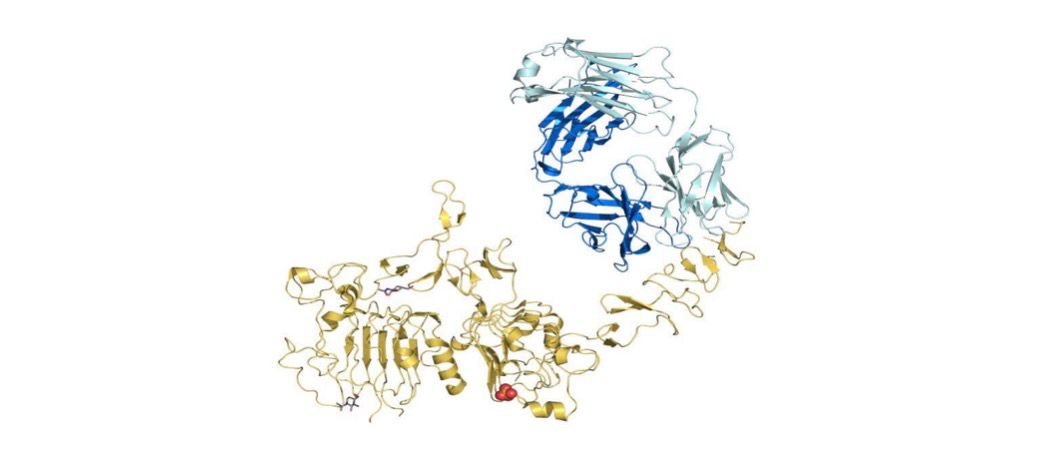Pertuzumab,Trastuzumab

Overview
Pertuzumab, Trastuzumab is a dual HER2-directed monoclonal antibody combination used in the management of HER2-positive breast cancer. These two antibodies work synergistically to provide a more complete blockade of HER2 signaling, thereby improving treatment outcomes when compared with trastuzumab alone. The combination is usually administered with chemotherapy such as docetaxel in advanced or metastatic breast cancer, as well as in neoadjuvant and adjuvant settings for early disease. By simultaneously binding to different regions of the HER2 receptor, Pertuzumab, Trastuzumab inhibits dimerization and downstream signaling pathways that drive tumor growth. This combination has become an important backbone of therapy in patients with HER2 overexpression, significantly improving progression-free and overall survival in clinical trials.
Background and Date of Approval
Trastuzumab was one of the first monoclonal antibodies developed against the HER2 receptor, transforming the treatment landscape for HER2-positive breast cancer in the late 1990s. However, resistance to trastuzumab monotherapy was a challenge. Pertuzumab was subsequently designed to complement trastuzumab by binding to a different domain of HER2, preventing receptor dimerization with other HER family members. The pivotal CLEOPATRA trial demonstrated that the addition of Pertuzumab, Trastuzumab to docetaxel significantly extended survival in patients with metastatic HER2-positive breast cancer. Based on these findings, regulatory authorities including the US FDA, EMA, and DCGI approved the combination starting in 2012 for advanced disease, and later expanded indications to include neoadjuvant and adjuvant therapy in early breast cancer. This dual antibody regimen has since become a global standard of care.
Uses
Pertuzumab, Trastuzumab is indicated for the treatment of HER2-positive metastatic or locally advanced breast cancer in combination with docetaxel in patients who have not received prior anti-HER2 therapy or chemotherapy for advanced disease. It is also approved in the neoadjuvant setting for patients with early HER2-positive breast cancer at high risk of recurrence, and in the adjuvant setting for node-positive or high-risk disease following surgery. Off-label, it may be considered in certain other HER2-driven tumors under investigation. The combination is an essential option in HER2-targeted therapy protocols and is commonly integrated with chemotherapy as well as newer agents depending on treatment sequencing.
Administration
Pertuzumab, Trastuzumab are administered via intravenous infusion. Treatment typically begins with a loading dose of both antibodies, followed by maintenance infusions every three weeks. Pertuzumab is usually given as an 840 mg loading dose followed by 420 mg every three weeks, while Trastuzumab dosing is weight-based with an 8 mg/kg loading dose followed by 6 mg/kg every three weeks. Therapy is continued until disease progression or unacceptable toxicity in the metastatic setting, or for a defined duration in early breast cancer. Premedication is sometimes given to reduce infusion-related reactions, and patients should be closely monitored during and after infusions.
Side Effects
The most frequently observed side effects of Pertuzumab, Trastuzumab in combination with chemotherapy include diarrhea, alopecia, neutropenia, fatigue, nausea, rash, and peripheral neuropathy. Infusion-related reactions such as fever, chills, or allergic symptoms can also occur, particularly during the first administration. These side effects are generally manageable with supportive care and dose modifications when necessary.
Warnings
Both Pertuzumab and Trastuzumab carry a risk of cardiotoxicity, including decreased left ventricular ejection fraction and congestive heart failure. Careful cardiac monitoring is required before and during therapy. Severe hypersensitivity and anaphylaxis have been reported in rare cases. Use during pregnancy may cause embryo-fetal toxicity, and therefore therapy should be avoided in pregnant women unless absolutely necessary. Serious diarrhea, severe neutropenia, and febrile neutropenia are additional concerns when combined with chemotherapy. Black box warnings for cardiotoxicity and embryo-fetal harm are applicable to trastuzumab-containing regimens.
Precautions
Patients with pre-existing cardiac disease or reduced ejection fraction should be evaluated carefully before starting therapy. Baseline and regular echocardiograms are recommended. Pertuzumab, Trastuzumab should be used with caution in combination with anthracyclines due to increased cardiotoxic risk. Concomitant administration with other monoclonal antibodies or investigational therapies should be monitored closely. Effective contraception is recommended during and after therapy to avoid pregnancy-related risks. Dose delays or discontinuation may be necessary in patients with significant cardiac or hematologic toxicity.
Expert Tips
When prescribing Pertuzumab, Trastuzumab, clinicians should ensure accurate HER2 testing to confirm eligibility, as the combination is only effective in HER2-positive disease. Baseline cardiac assessment is critical, and ongoing monitoring allows early detection of left ventricular dysfunction. Pharmacists should counsel patients about the importance of adherence to scheduled infusions and educate them on recognizing symptoms such as shortness of breath, palpitations, or swelling, which may signal cardiac complications. Supportive management for diarrhea and monitoring for neutropenia are essential during treatment, particularly when combined with chemotherapy.
